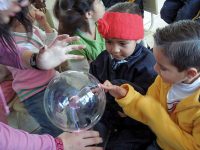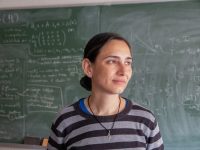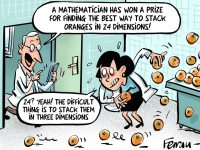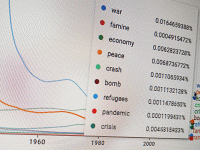Interview with Frederick Leung
«Many people are ignorant of basic math concepts»
President of the International Commission on Mathematical Instruction
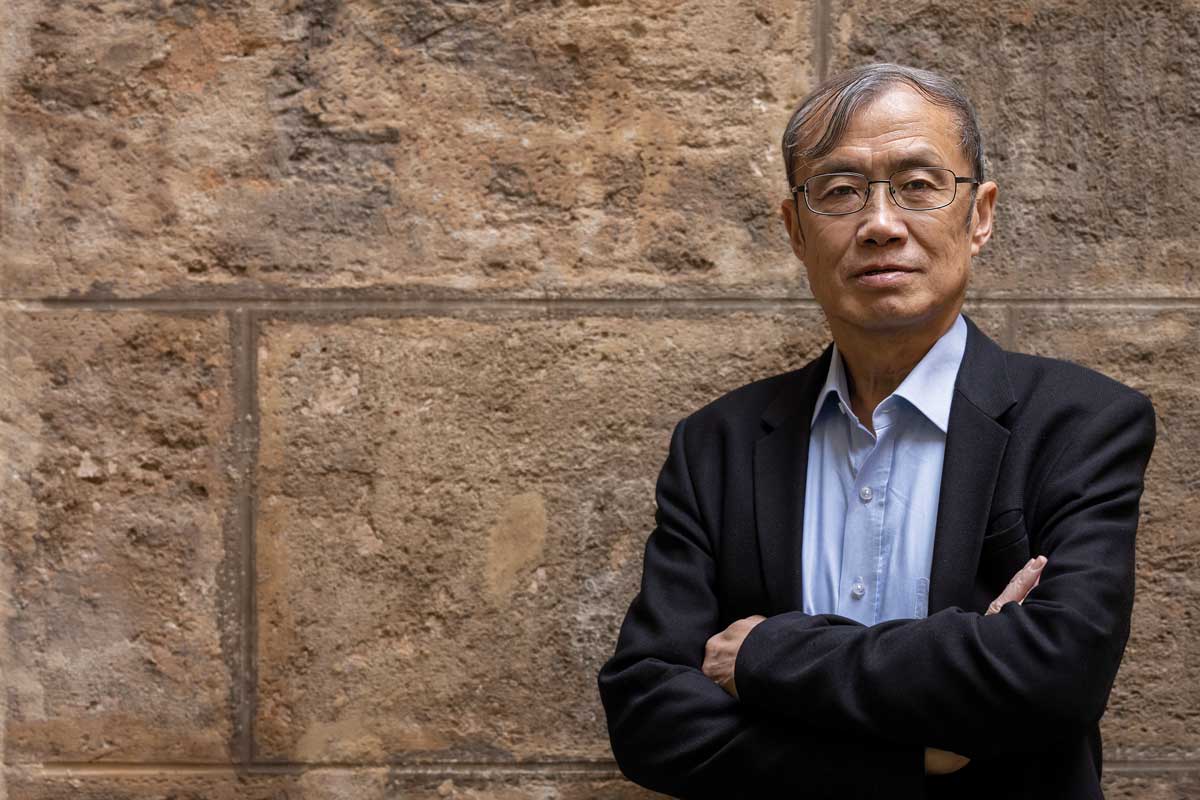
Is being good at mathematics a matter of innate qualities or of social and cultural circumstances? Professor Frederick Leung has spent years investigating the second hypothesis. Leung is Professor of Mathematics Education at the University of Hong Kong and currently President of the International Commission on Mathematical Instruction (ICMI), which was founded in 1908 and is part of the International Mathematical Union. ICMI promotes mathematics education on a global scale, primarily by encouraging research in the field of mathematics education. Since the mid-1980s, ICMI has been carrying out «ICMI Studies», research programmes that explore a topic relevant to mathematics education and culminate in the publication of a volume aimed at facilitating the development of actions in this area, both at the international or regional level and by local educational institutions. At the end of last February, the international committee that will launch the next ICMI study held its first meeting in Valencia. At this meeting we had the opportunity to talk to Professor Leung about the work of ICMI, the current challenges in mathematics education, and how culture and even language can influence how we see – and understand – numbers.
Which would you say are the main goals of ICMI?
We want to promote research and development of mathematics education all around the world at all levels, from kindergarten all the way up to university levels. A very important part of our job is to encourage international cooperation, so we have different affiliate organisations worldwide. These are either on a theme – for example, on mathematic modelling – and the other kind are regional organisations. Through this, we want to encourage research and good practices in math education around the world, and also promote cooperation among math educators in every continent.
In your opinion, what have been ICMI’s most important achievements?

Leung considers that the process of learning mathematics can help students to be sharp, critical, and objective. / Miguel Lorenzo
I think the most important achievement is that we have established mathematics education as an academic discipline. I think that many people would think about mathematics itself as an academic discipline, but they would not give the same consideration to math education. I think there is a common believe that math education does not require serious research and that for teaching math you just need some experience, and to learn the tricks of the trade. However, ICMI has done a lot establish mathematics education as an accepted academic discipline with its own research and theoretical bases.
What can you tell us about ICMI Study 26, whose first preparatory meeting is being held these days in Valencia?
ICMI 26 is about geometry teaching and learning. Geometry is a very important part of mathematics but it is also an area that has a lot of misconceptions. Many people think geometry is very abstract and boring… But actually, it is having a lot of impact in the modern world, and we really want to sort of update the field about what is actually happening. Thirty years ago, we had another ICMI study in geometry, and some things have changed tremendously since them. Therefore, it is time to update the field in order to inform educators about the state of the art of geometry teaching and learning.
What have been some of those changes?
For instance, technology. Technology has a lot of impact in math teaching in general, but especially on geometry teaching and learning. And it has changed fundamentally how this area is perceived. On one side, now we have new software to teach geometry. On the other side, in recent years we have had a fast development in neuroscience research, and while in the past we relied on clinical studies where we interviewed the students, now we can actually track what is happening [in their brains] when they perceive geometrical shapes and figures. This has immense implications on researching geometry teaching and learning, because it helps us understand how they process these figures.
Previous ICMI Studies have focused on aspects such as the reform of school mathematics curricula or collaborative work in the education of math teachers. How does this global approach to mathematics teaching and learning benefit local settings?
Most countries have their own research in math education and those research projects are very important because they target the local situation. The problem is that if we just rely on local research, we get so used to the way we do things, and do not think about how they can be done differently. Maybe here in Spain there is a lot of research on how to teach geometry better, but if you are exposed to ideas around the world, then some innovative ideas may arise, which you have never thought of in your own cultural environment. Also, we can also avoid mistakes that have been made in the past. This is one of the good things about ICMI: we encourage exchanges so we can share best practices. For this ICMI study, we are being very careful in the selection of the committee members, so that they come from different parts of the world, they have different experiences, and they have worked different paradigms in terms of geometry teaching and learning. And we will also be calling for contributions around the world. With this diverse group of scholars, I think we will be able to learn a lot from each other.
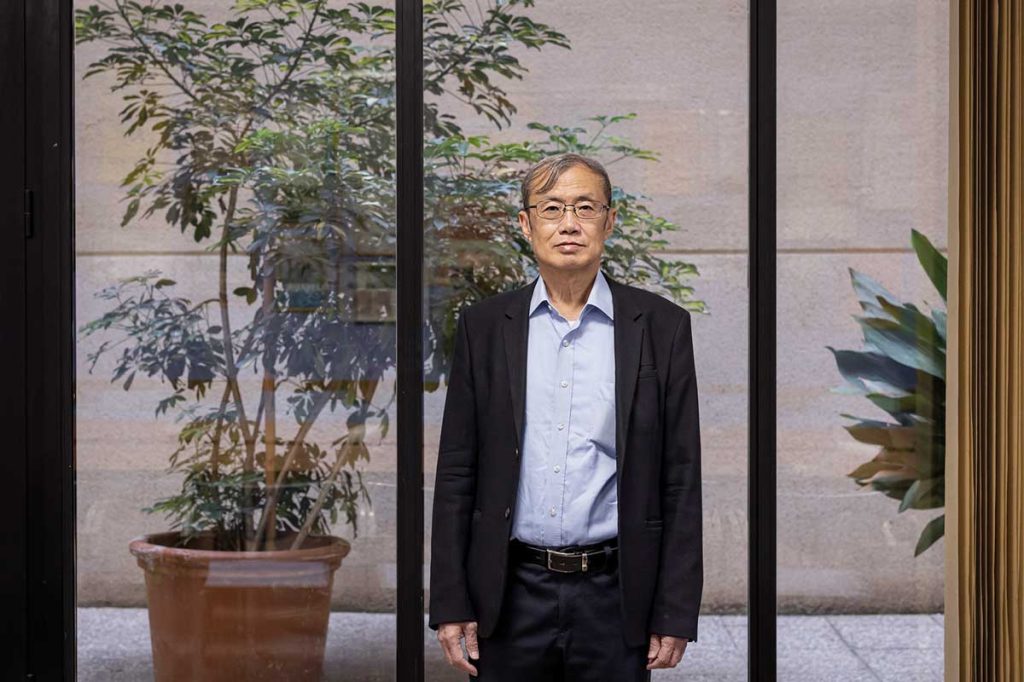
In the interview, Leung reflects that in Confucianist culture there is a strong emphasis on effort: if someone does not succeed in mathematics, they try harder. / Miguel Lorenzo
What do you see as the main challenges in teaching mathematics today?
I think the biggest challenge that we have in math learning is that students do not see the relevance of mathematics. I think that is because many teaching practices and textbooks focus on very trivial kinds of applications of mathematics, some of which are not even realistic. When you were a student, you must have uttered questions such as «John’s father age is four times that of John, and then three years later, etcetera. So, how old is John?» Well, why not simply ask John about it? [laughing] The covid-19 situation has showed us that many people are ignorant of basic math concepts. For example, one of the two vaccines that we have in Hong Kong has an efficacy of about 54%, and people think: «what is the point of taking a vaccine, if 46% of the people who take the vaccine get infected». Now, that is a totally wrong understanding of what efficacy is.
Do you think anumeracy is considered as serious as illiteracy?
Math illiteracy is a rather serious problem. In many parts of the developed world, mathematics is considered to be very difficult, so often it does not hold a core position in the curricula. It is a vicious cycle: students find it difficult, so we make it less difficult to them… And this leads to students not grasping even very simple fundamental concepts. On the other side of the world, in Easter countries, there is a lot of emphasis on drill and practice: the students perform very well in mathematics tests, but there is a big gap between the school and the mathematics they learn and what they can apply to real life. If you point out the relationship between a real-life problem and the math that they learn in school, then they click. But they never develop that bridge themselves.
Do you think students, and people in general, are afraid of maths?

According to Leung, the main challenge is that students do not find mathematics relevant. / Miguel Lorenzo
Yes, I think sometimes the teachers are making mathematics very inaccessible to students. They only have the curriculum and the tests in mind… And I know it is hard, because in Hong Kong, for instance, there is a great pressure from the school, from parents, that the students do well in maths examination so they can get a place in university, etcetera. So, as a result, some teachers are just focusing on doing the tests, so mathematics are not meaningful to students. I think unless we change that, our students will still find mathematics very abstract, unrelated to their lives, and they will hate math.
What should we do to change that?
Again, I think is a matter of teaching. We teach the theoretical side of maths I and then some trivial application without relating it to the real world. And, of course, it is something that is very difficult to include in the curricula because the world changes so fast, and, unfortunately, many teachers do not have the time or the background to do this. But I do think they should try to make use of the immediate environment in order to introduce the contributions of mathematics to students. We must make them aware of their importance in the modern world. For instance, in a field such as cybersecurity, so relevant nowadays. But, also, mathematics is a way of training our logical, reflective thinking. These days we talk a lot about fake news, and how the media is full of different ideas… How are we supposed to decide what to believe or not? Well, even if quadratic equations or the Pythagoras theorem have no application in most of our students’ everyday lives, the process of learning maths is a way to help them to be sharp, critical, and objective. I think this is something that we should really stress.
You have studied the interrelations between students’ most immediate environment and their math performance in China, like their family situation, their culture… How can these factors influence the way one learns math?
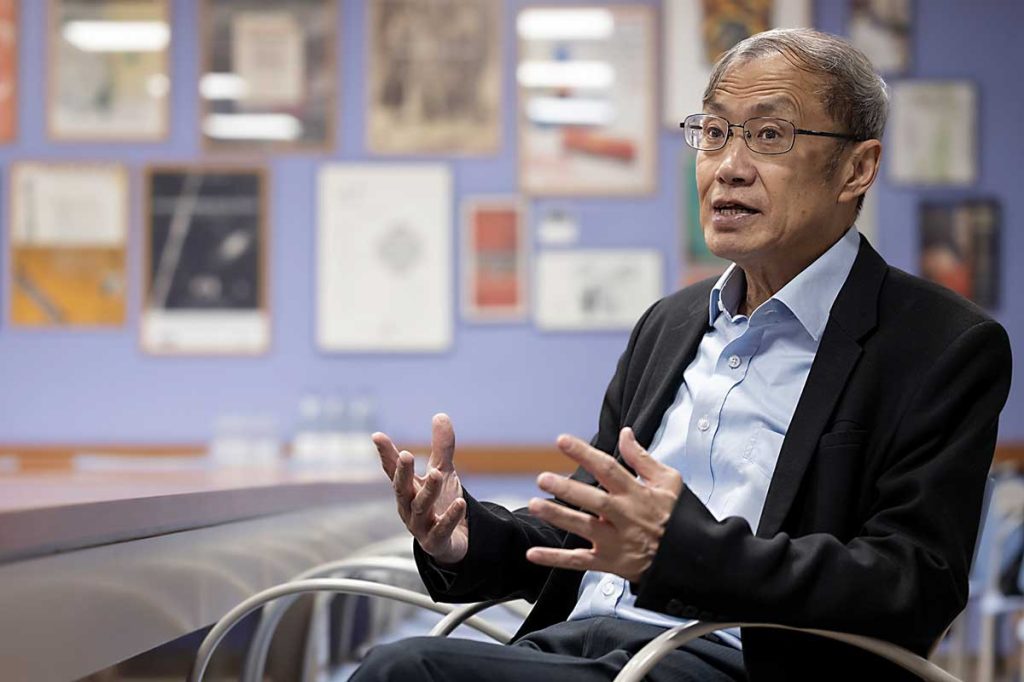
Leung says that when considering changes to curricula or teaching practices, we have to take local culture into account. / Miguel Lorenzo
Traditionally, to evaluate how effective the teaching is, we usually just look at teacher’s practices, the students’ aptitudes… All the more psychological aspects of teaching and learning mathematics. But we are finding that sociological aspects are important as well: the whole environment, starting from the school environment, and also the society, and the culture teachers and students are in… actually have a lot of influence on the teaching and learning of mathematics. I am from Hong Kong, which is under the Confucian heritage culture, so in my research I am trying to identify how this deep-rooted culture variants are affecting how teacher are teaching mathematics and how students are learning. This has opened a totally new perspective into the effectiveness of maths education; it is not just about the classroom, it is much more than that.
Can you give us an example of some of your findings in this regard?
In the Confucian culture there is a lot of emphasis on effort. So, if you are not good in mathematics, you put in more effort. However, in some Western cultures there is a strong believe that innate ability is more important, that some people are born good in mathematics and some just do not have the aptitude for it. And if teachers believe this, they communicate that to students. Therefore, if students find maths difficult and teachers are like «well, you are just not good at mathematics», students give up too early and they cannot attain the literacy level that they need to survive in this modern word. I think that is why there is a lot of disparity in student achievement in maths in the Western world: there are some very good mathematics students and there are some that are really, really bad. But in the Confucian culture, because of this believe in effort, the discrepancies are not that big, because even the so-called less able feel that if they put an effort, then they can achieve it. If fact, if we looked at the international comprehensive studies in maths education, like PISA carried out by the OCDC, or the IAE Tims projects, there is a very robust finding, and that is, countries under the Confucian heritage culture perform consistently well in mathematics. So, I think this is evidence that the culture is actually has a lot of influence on students mathematics teaching and learning.
In close relation to this, you have also studied the influence of Chinese and English languages in the understanding of mathematical word problems, which you mentioned before. Is mathematics not supposed to be a universal language?
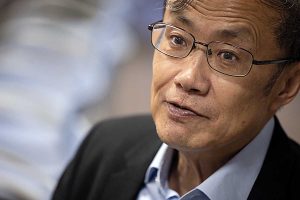
Leung states that although mathematics is a universal language, we still have to learn it in our own language. / Miguel Lorenzo
[Laughs] That may be the misconception. In a sense, mathematics is an international language, but first, you have to learn it from your own human language. And the thing is, language is a very important component of culture. So, in the context of trying to understand why Confucian heritage culture countries are doing better in mathematics achievement when compared to Western countries, I wondered: could language be a factor affecting students’ achievement? Now, it is a probable proposition, but it is not easy to study. For example, in one of my projects, we sent English speaking children in Australia and Chinese speaking children in Taiwan the same test – in their own languages, of course. And we asked them to use an eye tracker when working on the items. The assumption for this is that when you fix your sight onto a certain point, you are doing deeper processing, and of course the contrary if you just skip it. The eye tracker follows the eyeball movement, fixation points, sequence of fixation… And we found that these are very different in Chinese and English, which suggests that, even with the same mathematical problem, Chinese students and English students process it very differently. This is in a very initial state of research, but it is very interesting.
So, what could Western countries learn from the success in maths of these Confucian heritage culture countries?
Well, first, we need to know that we cannot just borrow successful practices from other parts of the world and import them to another country. For example, some states in the USA have imported textbooks from Singapore because Singapore performs really well in TIMS and PISA tests. I do not know how they evaluate the success in this, but from a theoretical point of view, I think this is of no use, because you can import Singaporean textbooks, but you cannot import Singaporean culture together with them. Singaporean textbooks work because of the Singaporean culture, and they might not work within American culture. There was also a project to invite mathematics teachers from Shanghai (China) to England for half a year and in fact the BBC made a series about it.1 Shanghai had done very well in PISA, but the experience was a failure, because these teachers taught very well when they were in China, but English students had a totally different background. I think that the implication is that, in any consideration of changes in the curricula or teaching practices, we need to take the culture of the place into consideration. You have to see which things your culture can accept; otherwise, it will not work.
Notes
1. Are Our Kids Tough Enough? Chinese School (2015). (Go back)


